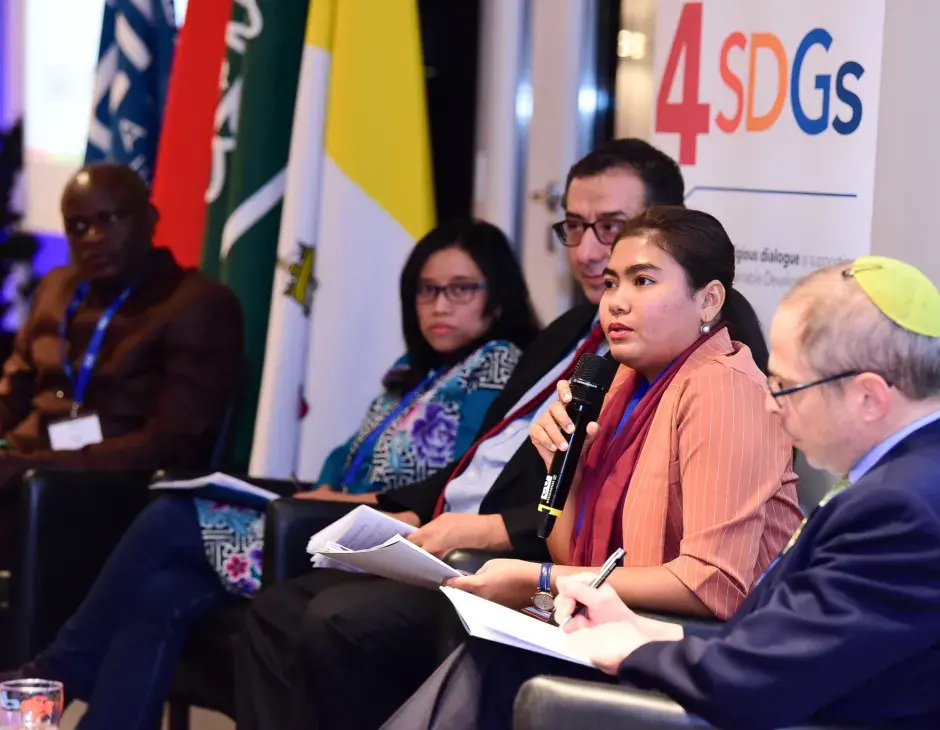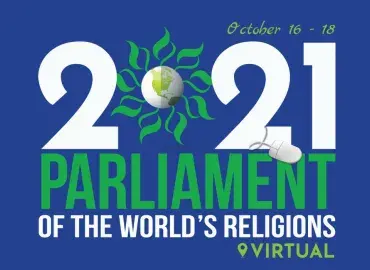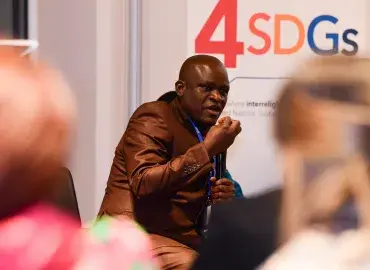The Dialogue4SDGs conference organised by the International Dialogue Centre (KAICIID) concluded yesterday with an agreement that the United Nations Sustainable Development Goals can only be achieved through the involvement of religious leaders and their communities.
The participants, over 120 KAICIID Fellows coming from more than 40 countries and 9 religions, highlighted the need to work at the grassroots level and to integrate dialogue inachieving the global goals.
The conference took place in Vienna from 11-12 December and focused on four areas where interreligious dialogue is supporting the goals. KAICIID Secretary General, Faisal Bin Muaammar, explained that it is part of the Centre’s mandate to engage on the discussion around the SDGs, in particular goals 4, 5, 16 and 17.
“Our conference theme and the principles behind KAICIID’s Fellows Programme rest on the belief that dialogue, in particular, interreligious dialogue, finds its deepest relevance in the wider search for human development,” he said.
“Religious and traditional leaders provide a very unique lens by which to view and to solve the most present development challenges of our time. Interreligious dialogue is a critical component of our efforts,” Kirsten Evans, Director, U.S. Department of Education Center for Faith and Opportunity Initiatives and Senior Adviser at USAID said.
“When a society is fragile, marginalised and broken it is hard to imagine any sustainable intervention without religious leaders being at the core. The role of faith leaders in community development has existed from all times, but it has never been as acknowledged as today,” Maya Assaf-Hortsmeier, Director, Conflict Sensitivity and Peacebuilding at World Vision added.
The panels showcased the experiences of 33 Fellows alumni who are working through interreligious dialogue to achieve peace and development in their communities. The conference also provided a space to discuss their challenges and potential areas of collaboration across religions and countries.
The ideas of promoting collaboration between religious leaders and policymakers, as well as the need to train leaders of religious communities were some of the general recommendations, which will be compiled, published and incorporated in Fellows programme’s future initiatives.
Although the conference focused on four specific areas, the Fellows encouraged multireligious and multisector partnerships in response to other issues, such as climate change. “We need more clean water, fresh air, a healthy environment. As religious institutions, we should be working more practically,” Dr. Amanah Nurish, an anthropologist from Indonesia said.
The recommendations towards the achievement of SDG 16, related to peace, justice and strong institutions, included the use of social media to counter narratives of hate and the incorporation of training on digital communication as part of religious educational programmes as ways to involve youth and empower religious leaders.
“Humanity is not complete if the female and male components are not there,” said Rabbi David Rosen, member of KAICIID’s Board of Directors during the panel on SDG 5, related to gender equality and women’s empowerment. The panellists, women from Guatemala, Saudi Arabia and the United States, agreed on the need to educate their communities on the role of women inpeacebuilding.
“History has proven that empowering women is a contribution to eliminating conflict and solving problems,” Saudi professor Basmah Ahmed Jastaniah said. They recommended the use of resources available within religions to effect change. They also encouraged horizontal and intragenerational dialogue as pathways to changing attitudes.
Some of the recommendations to achieve SDG 4, related to education, included the adoption of Global Citizenship Education, peace education, and interreligious and intercultural dialogue at the national policy level, as well as reviewing curricula to promote respect for differences, enhance pluralism and foster social harmony.
In the discussion around partnerships (SDG 17), dialogue practitioner Stephen Shashoua referred to the rise of antisemitism, violent extremism and xenophobia as some of the current challenges. “It is dark and it is getting darker. Only if we are concerted in our efforts and bring our lights together, we can win over darkness,” he said.
Board Member Dr. Mohammed Sammak celebrated the timing and themes discussed during the conference. “The message cannot exist without a messenger,” he said in reference to KAICIID’s work and the Fellows. He encouraged participants to continue building bridges in their communities.
The International Dialogue Centre (KAICIID) will place a spotlight on the role of faith in promoting global development and…
Dialogue plays a central role in advancing the United Nations Sustainable Development Goals (SDGs). A tool for religious…




